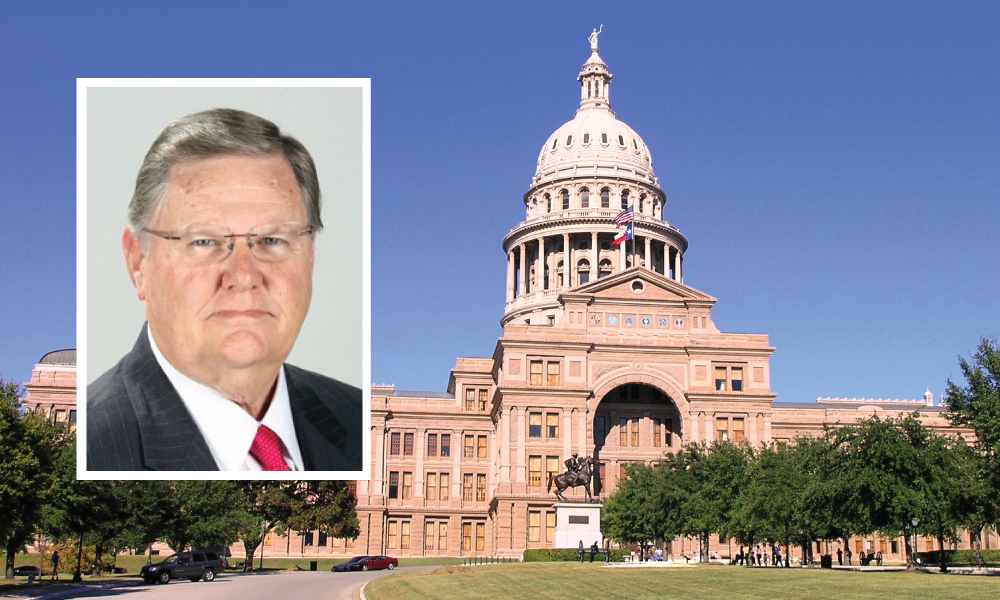Texas Gov. Gregg Abbott met with a handful of mayors from across the state Wednesday, July 26, including Corpus Christi Mayor Joe McComb. The meeting was one of three set up to address concerns expressed by the mayors of the state’s 18 largest cities that the state legislature is stepping on local toes by limiting powers of municipalities to tax and pass ordinances.
“He’s going to be hearing from every corner of the state,” McComb told Corpus Christi Business News after the meeting. “He’s going to have a lot of information to put in his soup bowl to stir up. I made sure Corpus Christi is part of that mix.”
The mayors of the state’s 18 largest cities signed a letter to the governor requesting to meet with him to voice their concerns over bills being considered by the special session of the legislature, which began July 18. The 30-day session has a 20-item agenda with a plethora of items aimed at limiting a city’s power to increase taxes and regulate.
“It’s not just me, obviously,” McComb said. “Evidently, other people across the state are concerned about what in the world is going on in this assault of the legislature on the local level’s ability to handle our own issues.”
Also in the meeting with McComb were the mayors of Galveston and San Marcos. The governor met with the mayors of Amarillo, El Paso and Lubbock the following day. He is scheduled to meet with the mayors of Arlington, Frisco, Irving and McKinney on Aug. 2. Meetings with the top five largest cities — Austin, San Antonio, Fort Worth, Dallas and Houston — were not on the governor’s calendar as of press time.
“It was not a big meeting, which was good from the standpoint that we got to sit at the table and have a nice, friendly visit and express our concerns,” McComb said. “Of course, in a 20- to 30-minute meeting, you can’t solve all the problems of the world.”
The mayors kept their list of concerns to three issues: capping tax increases, capping revenue increases and limiting annexation powers.
One bill before the legislature would cut the current 8 percent cap on tax increases in half to 4 percent. Any municipality raising taxes over the 4 percent mark would be open to a possible rollback election from voters.
McComb made three points about that suggestion. First: Elections are expensive, and requiring a rollback is an unfunded mandate. Second: Cities facing a crisis would be not be able to quickly raise the funds needed. He pointed to a recent notice received by the city that health insurance for employees will be increasing by 40-45 percent soon.
“That’s a big hit,” McComb said, “and it’s not just health insurance. There are other things that need addressing and other things that could happen.”
Finally, he said, state government should be looking at school districts, which are under state authority, and not cities, which typically are not.
“We just felt like we could address our issues better,” McComb said. “The state is responsible for schools, but they can’t seem to solve that. Why do they want to solve city problems when they can’t solve the schools?”
On annexation, McComb expressed particular concern that legislation being considered would, again, call for an election, even when a neighborhood asks to be annexed. This particular concern might have a compromise, McComb said.
“The governor did say that a provision was being considered that would change requiring an election to a super-majority vote on the council instead of just a majority,” he continued. “In Corpus Christi, that would be six members who would have to approve an annexation.”
McComb felt positive about his meeting with the governor.
“I was appreciative of his openness and willingness to listen,” he said. “This wasn’t just a photo op for him. He listened to us. I don’t know if we changed his mind, but I think it will go into his thought processes as the session proceeds.”
McComb meets with governor on city concerns

Corpus Christi Mayor Joe McComb and three other Texas city mayors met with Governor Gregg Abbott Wednesday, July 26, to discuss special session agenda items that threaten to take power from local governments.